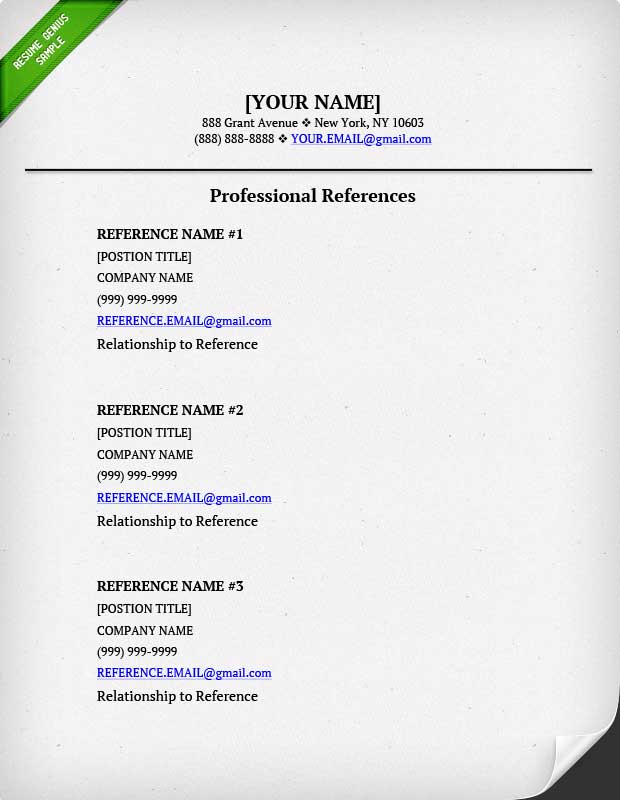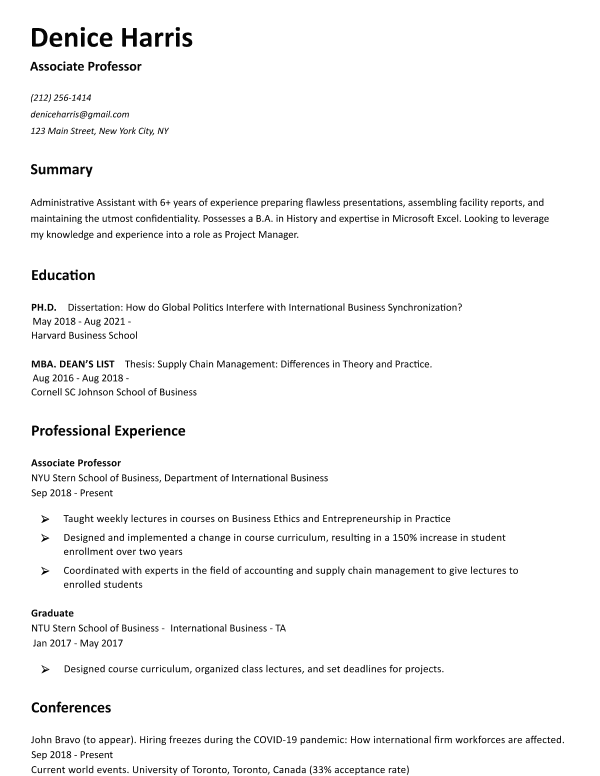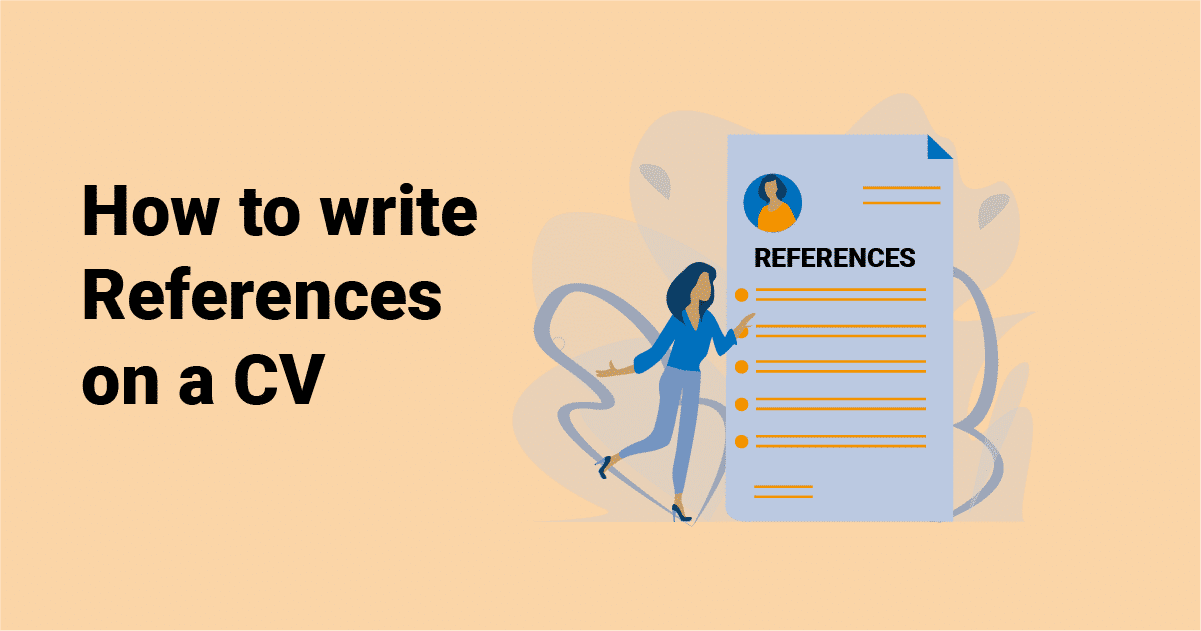Ace Tips About What Is Reference Type In CV

Understanding References in Your CV
1. Why References Matter
Ever wonder why potential employers ask for references on your CV? It's not just a formality. Think of it as them wanting to do a little "background check" — but in a good way! They want to hear from people who've worked with you before, to get an outside perspective on your skills, work ethic, and overall awesomeness. Its like getting character witnesses before they offer you the job. They are trying to confirm what you said about yourself is indeed true.
Basically, references help employers verify the information you've provided. Did you really lead that project to success? Are you truly a team player? Do you actually get along with others (most of the time, anyway)? References provide valuable insights that a resume and cover letter simply can't.
A good reference can highlight your strengths in ways you might not even think of yourself. They can speak to specific situations where you demonstrated problem-solving skills, leadership qualities, or a knack for innovation. Its like having someone else sing your praises, which is always more effective than singing them yourself!
Plus, providing references shows you're confident in your abilities and that you have a positive reputation within your professional network. It shows trust and transparency, signaling to the employer that youre not afraid to let others vouch for your skills and character. So, choose your references wisely!
What Exactly Is a Reference Type in a CV?
2. Defining the "Type"
When we talk about "reference type" in a CV context, we're not talking about some complicated coding language. Simply put, it refers to the nature or category of the person providing the reference. Think about it: a reference from your former boss carries different weight than a reference from a client or a fellow colleague.
The most common types of references include supervisors or managers (your direct boss), colleagues (peers you worked alongside), and sometimes even clients or customers (especially if you're in a client-facing role). Each type offers a different perspective on your work style and abilities.
For example, a supervisor can speak to your performance, leadership potential, and overall contribution to the company. A colleague can highlight your teamwork skills, communication abilities, and how well you collaborate with others. A client can attest to your customer service skills, problem-solving abilities, and ability to build relationships.
The key is to select references who can best speak to the skills and qualifications that are most relevant to the job you're applying for. Think strategically about who can paint the most compelling picture of you as an ideal candidate.

Choosing the Right Reference Type
3. Matching References to the Job
Dont just pick names out of a hat! Choosing the right reference type is all about strategy. Before you start compiling your list, carefully review the job description. What skills and qualities are they emphasizing? Which types of references would be best suited to vouch for those specific attributes?
For a leadership role, a former supervisor who witnessed your ability to motivate and inspire a team would be an excellent choice. For a customer service position, a client or customer who benefited from your exceptional service would be ideal. If the role emphasizes teamwork, a colleague who worked closely with you on collaborative projects would be a valuable asset.
Consider the perspective each reference type offers. A manager can speak to your overall performance and potential for growth within the company. A colleague can shed light on your interpersonal skills and ability to work effectively in a team environment. A client can highlight your ability to build rapport and deliver outstanding results.
Think of it like building a case for why you're the perfect candidate. Each reference type provides a different piece of evidence that supports your claims. By strategically selecting your references, you can create a compelling narrative that showcases your strengths and qualifications in the best possible light.

Common Mistakes to Avoid When Listing References
4. Reference "Don'ts"
Listing references on your CV isn't just about providing names and contact information. There are some common pitfalls you want to avoid to ensure your references actually help — and don't hurt — your chances of landing the job.
First and foremost, always ask for permission before listing someone as a reference. It's common courtesy, and it gives them a heads-up that they might be receiving a call. Plus, it allows them to prepare their thoughts and provide a thoughtful, positive recommendation. Imagine their surprise (and potential annoyance!) if they get a call out of the blue.
Don't include references who are family members or close personal friends. While they may think you're the greatest thing since sliced bread, their opinions might be perceived as biased. Stick to professional contacts who can provide an objective assessment of your skills and abilities.
Avoid listing references who are no longer employed at the company where you worked together. If possible, choose references who are still with the organization, as they can provide a more current perspective. If that's not possible, make sure they're still willing to act as a reference and that their contact information is up-to-date.
Finally, make sure you provide complete and accurate contact information for each reference, including their name, title, company, phone number, and email address. Double-check everything before submitting your CV to ensure there are no errors.

How To Write References On A CV Jobberman Ghana
FAQ
5. Everything You Need to Know
Still have some questions about reference types and how to use them effectively in your CV? Here are some frequently asked questions to help clear things up:
Q: How many references should I include on my CV?
A: Generally, 2-3 references are sufficient. Most employers won't contact more than that.Q: Should I include references directly on my CV, or should I say "References available upon request"?
A: The traditional advice was "available upon request," but many modern CVs list them directly. Consider the industry and the specific role. If the job posting explicitly asks for references, provide them. Otherwise, "available upon request" still works, but be prepared to send them quickly when asked.Q: What if I don't have any professional references?
A: If you're just starting out in your career or switching fields, you might not have many professional references. In that case, consider asking professors, instructors, or volunteer coordinators who can speak to your skills and work ethic.Q: What information should I provide to my references before they're contacted?
A: Give them a heads-up about the job you're applying for and provide them with a copy of your CV and cover letter. This will help them tailor their recommendations to the specific requirements of the position. Also, gently remind them of specific projects or accomplishments they can highlight.Q: Is it okay to use a previous internship supervisor as a reference?
A: Absolutely! Internship supervisors are excellent references, especially if they can speak to skills relevant to the job you're applying for. They can vouch for your work ethic, ability to learn, and potential for growth.
![How To List References On A Resume [And If You Should] How To List References On A Resume [And If You Should]](https://www.findmyprofession.com/wp-content/uploads/2020/02/Reference-Sheet-Sample.png)
How To List References On A Resume [And If You Should]
